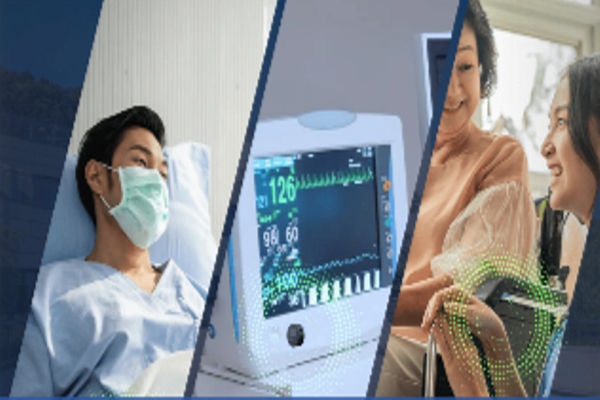The integration of the Internet of Things (IoT) into healthcare is not just a technological advancement it marks a transformative shift. As global health systems face mounting pressure to improve access, efficiency, and patient outcomes, IoT is emerging as a powerful enabler. From chronic disease management to hospital automation and remote diagnostics, connected devices are helping to reimagine how healthcare is delivered and experienced.
From Episodic Treatment to Continuous Care
Historically, healthcare has followed a reactive model: treatment begins when symptoms appear. IoT is helping shift that approach toward proactive, continuous care by embedding sensors and connected tools into the patient journey. Wearables such as fitness trackers, ECG monitors, and smart glucometers enable real-time monitoring and allow physicians to detect early warning signs, adjust treatment remotely, and improve clinical outcomes.
This is particularly impactful for patients managing chronic conditions like diabetes or cardiovascular disease, and for those in remote or underserved regions. By reducing the need for frequent hospital visits while maintaining consistent oversight, IoT is strengthening both access and affordability.
Optimizing Hospital Workflows and Infrastructure
Beyond patient-facing devices, IoT is transforming healthcare infrastructure. Connected hospital beds can track patient vitals and automate alerts for clinical staff. RFID-based asset tracking ensures that critical equipment is easily located and medication inventory is efficiently managed. Automated systems are also being deployed to maintain cold-chain integrity for sensitive drugs and vaccines a crucial element in modern hospital logistics.
These improvements not only enhance patient safety but also relieve administrative burden on healthcare workers, allowing them to focus on high-value clinical tasks.
IoT + AI: A Powerful Combination
While IoT provides a continuous stream of health data, its real value is unlocked when combined with artificial intelligence. Machine learning models can interpret the vast influx of information generated by connected devices to enable predictive diagnostics, trend forecasting, and smarter clinical decision-making.
Several emerging platforms in India are integrating IoT and AI to power scalable healthcare models. One such example is Bizaario Care, which is applying these technologies to facilitate cross-border healthcare access. By layering AI-driven triage, digital health records, and remote patient monitoring into a unified platform, the company is enabling patients from underserved regions to access high-quality treatment in India while maintaining continuity of care post-treatment. This model reflects the growing demand for integrated, tech-enabled care experiences that extend beyond borders.
Privacy, Standards, and Interoperability
As the adoption of IoT in healthcare accelerates, data privacy and system interoperability remain critical considerations. With health data among the most sensitive categories of personal information, ensuring end-to-end encryption, consent management, and compliance with health data regulations is essential. At the same time, interoperable standards are needed to avoid data silos and enable seamless communication between devices, platforms, and care providers.
Initiatives like India’s Ayushman Bharat Digital Mission (ABDM) are setting the stage for unified, open health ecosystems that support device integration and secure patient data exchange at scale.
India’s Leadership Opportunity
With its combination of robust medical infrastructure, digital public goods, and a growing health tech ecosystem, India is well positioned to lead the next phase of health innovation through IoT. The convergence of low-cost connected devices, AI capabilities, and scalable platforms is enabling new care delivery models that can meet the unique demands of emerging markets and serve as blueprints for global adoption.
IoT in healthcare is not just about connecting machines it’s about building an infrastructure that enables proactive, personalized, and equitable care. As the digital health landscape continues to evolve, the role of IoT will only deepen, driving systemic transformation in how care is delivered, monitored, and optimized.

















